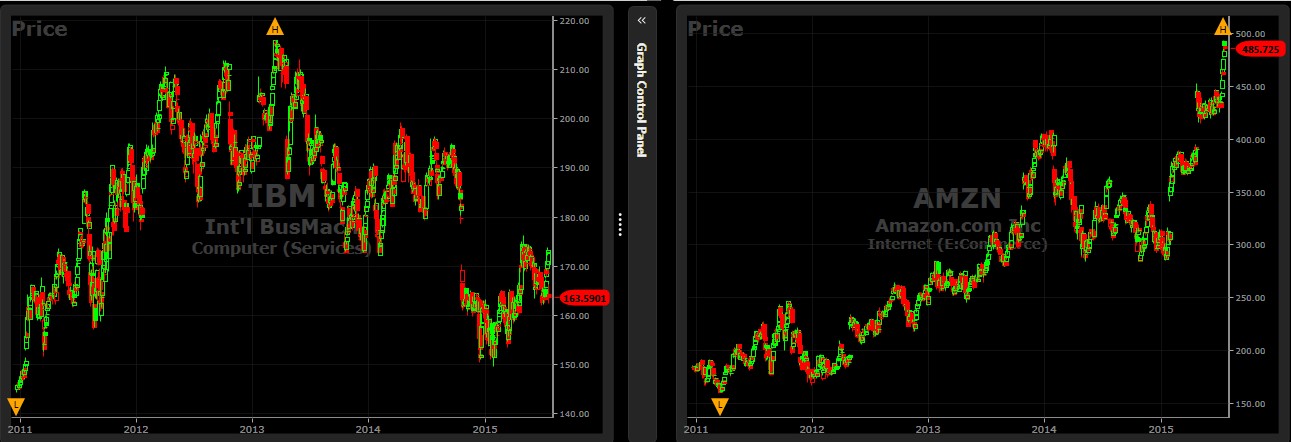The two oilfield service giants, Schlumberger (NYSE:SLB) and Halliburton (NYSE:HAL) have now both released earnings for the second quarter of 2015 and both have reported a handy beat of the analysts’ consensus Earnings per Share (EPS). Results aside, though, the two companies’ different reactions to the oil price collapse gives investors who are looking to increase exposure to energy now that the sector is cheap a hint that, over time, one will prove to be a much better investment than the other.
When companies are faced with cyclical downturns in their business, the initial reaction is somewhat predictable. Almost all batten down the hatches and start to identify areas where costs can be saved in order to minimize the damage. Both Schlumberger and Halliburton have done just that. That move is not just predictable, it is also healthy. It is one of the mechanisms by which capitalism achieves the kind of efficiency that is its hallmark, and usually leads to fitter, stronger corporations when things rebound. The reaction following that initial response, however, is not always the same. A company can continue to cut costs in a conservative manner, or use the downturn to initiate a program of growth through acquisition. Which path they choose can tell investors a lot about the culture of a company and the long term value of its stock.
Related: Obama’s Goals For Middle East Hinge On Putin
This pattern isn’t just confined to businesses such as oil, where revenue is affected by the price of a commoditized product. In the tech sector, for example, IBM (NYSE:IBM) reacted in one way to the recession of 2008/9, while (NASDAQ:AMZN) took the opposite path. While IBM was busy continuing to rein in costs and returning that saved cash to shareholders in the form of dividends and share buybacks, Amazon embarked on an acquisition spree designed to spur growth. The charts for both stocks since the beginning of 2011 show the long term effects of those policies.
Related: Oil Shipments By Rail Declining
[BREAKING]: Trader who "Broke the Bank of England" grants first interview
Since 1992 his secrets were locked away in his brain… but just recently he agreed to a private interview. It was all caught on camera… and what he has to say will change everything you think you know about trading. But you need to see it now… before it’s removed from the Internet again. View it (if it's still available) now...
Of course, this is not a pure comparison, as other factors were at play during that period, but the principle holds; the company that sees a downturn as an opportunity to grow is the better long term investment.
In the case of Schlumberger and Halliburton, the difference is clear. Schlumberger CEO Paal Kibsgaard said in their earnings call that they believed that the North American rig count may be touching bottom, but outlined no plans to expand based on that assessment. Halliburton’ CEO, by contrast, said in their call that “… we will manage costs through the downturn, while looking beyond the cycle to ensure that we will be positioned for growth when the industry recovers.”
Related: Big News For Uranium Miners Could See A Price Rebound Soon
In fact Halliburton, in announcing their intent to merge with rival Baker Hughes (NYSE:BHI), had already made that clear. That merger may be bogged down by regulators right now, and may even prove to be a short term drag if it is completed, but faced with one company taking the IBM approach and passively waiting for a recovery and another that, like Amazon, is looking for deals through which to grow, I know where I would rather have my money.

